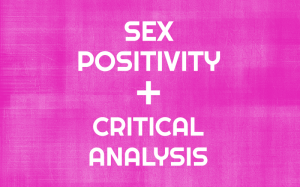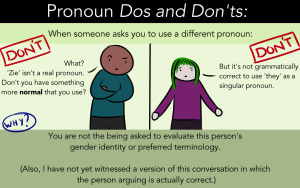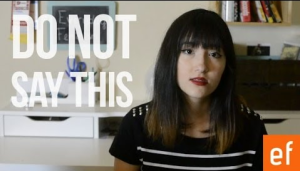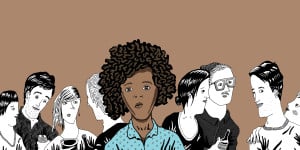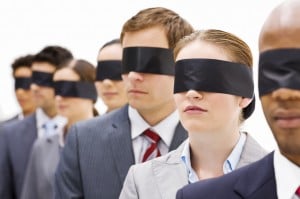This video is part of a series for Everyday Feminism, a website dedicated to helping you stand up to and break down everyday oppression.
You know, sometimes when I have conversations about racism, I often hear the phrase “Two wrongs don’t make a right.”
I think this is a pretty fair thing to say in most scenarios.
If you knock my ice cream out of my hand, I’m not really justified in knocking yours out of your hand, even if doing so would give me a lot of pleasure.
When discussing racism, I often hear this whenever I’m criticizing white supremacy and how it materializes in this country.
For some reason, a lot of white people can’t seem to separate criticisms of white supremacy from criticisms of all white people. I don’t generalize all white people, but often this is how these conversations are read. Even now, I’m sure some people watching this video are already starting to get defensive.
“Well, if the shoe fits, wear it – and buy two pairs.”
A lot of white people seem to fear that I categorize or stereotype all white people as racist – and they’ll tell me that stereotyping all white people is hypocritical and that “two wrongs don’t make a right.” But when applied to the concept of systemic racism, “two wrongs don’t make a right” washes over the issues of privilege and power.
Let’s say that there are two kids on a playground. One of them is on ball duty and has seven jelly balls, and the other doesn’t have any jelly balls at all. Let’s say that the kid who doesn’t have a jelly ball finds a jelly ball and now has one. The kid on ball duty doesn’t like this and takes the ball away from him, and now he has eight.
Now, let’s say the kid who had a ball but now has none takes a ball from the kid who’s on ball duty who had 8 balls. They both committed the same “wrong” action, but ultimately, they’re not on the same footing.
Historically speaking, when white people gathered around and built up stereotypes about black people, they put on white hoods, burned down black businesses, and solidified after the slavery disenfranchisement of black people.
Now correct me if I’m wrong, but when has a black person’s stereotype about white people led to anything even vaguely similar in this country?
Let’s just pretend for a moment that I did believe that I stereotype all white people as racist. That would be like the kid with no jelly balls taking one of the jelly balls from the kid who’s on ball duty.
Now as a concept, is taking someone else’s jelly ball wrong? Yes.
But the actual impact of taking that ball is almost entirely unfelt when you’ve already got six other jelly balls that you can barely hold onto.
Stereotyping as a concept is wrong. But ignoring how power and privilege has made it so that certain people can actually take their stereotypical views of certain groups of people and translate it into systemic oppression is just dishonest.
Racism isn’t child’s play, and we can’t use these phrases we learned as children as valid arguments in adult conversation.
So next time you say “two wrongs don’t make a right” in defense of a majority group, ask yourself if the perceived stereotype you’re discussing has lead to systemic oppression or not. Because when there’s a power imbalance, two wrongs don’t have the same impact – and probably shouldn’t be compared.
Kat Blaque for Everyday Feminism, signing out.






